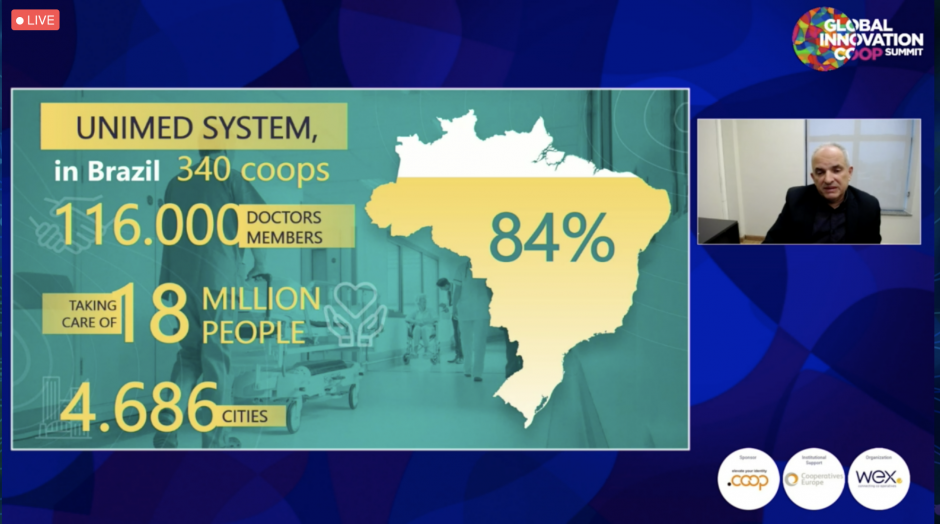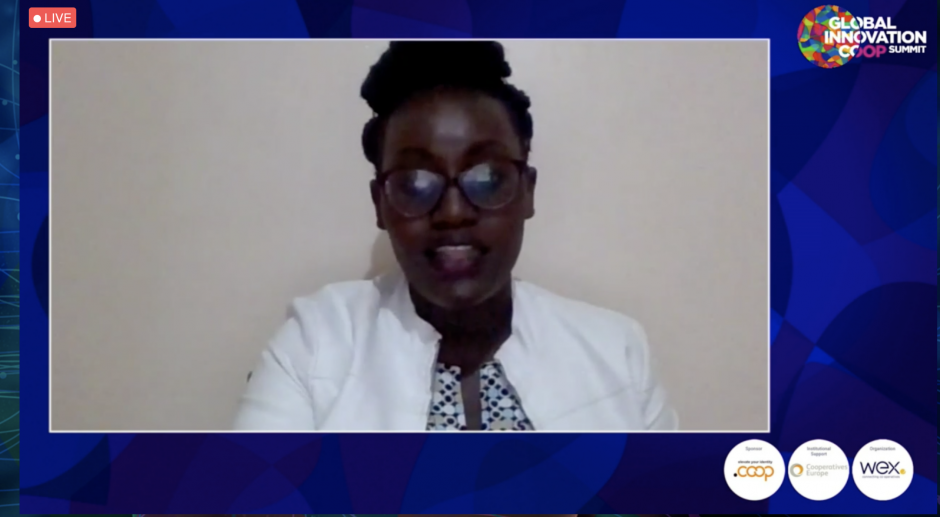The Global Innovation Coop Summit featured a series of online presentations highlighting how co-operatives around the world are driving innovation.
Dr Sabine Seymour shared her experience as an entrepreneur, researcher and founder of Polypoly, a data co-operative. By installing the PolyPod app on their devices, users ensure that their data no longer leaves the device but is stored on a private server under their control.
Those wishing to monetise their data can choose to do so. As members of the co-operative, users can be involved in its running and stand for election on its board. Polypoly was set up as a European co-operative society, so anyone in the EU can join it.
“We initiate ideas as founders but your team elevates the whole venture,” said Dr Seymour. She encouraged co-ops to explore, stay informed, be fearless and firm on their ideas and involve all team members to elevate ventures.

Diedrick Croese, co-founder & CEO of SingularityU Benelux also offered some advice to co-ops looking to innovate. He warned: “The difficulty is not so much in developing new ideas, as in escaping old ones”, and told co-operators to stay up to date with industry trends.
“It’s important to keep a beginner’s mind to have an open mind, because the linear world will be dramatically different from the exponential growth,” he said. As to technology, he said this was “not something that you want to be applied without rules”, adding that it needed “to be contained and aimed right” while considering its full impact.
He said: “Co-ops allow for a multitude of perspectives so they are less vertical, more horizontal. They might have far more tentacles and nerves, a nerve system that fits what society needs compared to more vertical organisations that are more rigid.”

Dr Luiz Otávio Andrade from Federação Unimed, MG in Brazil talked about the group’s approach to technological innovation. A federation of medical co-operatives, Unimed aims to give access to as many people as possible at an affordable price, and to improve the quality and lower the cost of care. “Technology can help in all these aspects,” he said.
During the pandemic, Unimed had to quickly adapt to a changing environment. This involved developing a telemedicine platform to reduce the spread of Covid-19 and an online platform to allow patients to request hospital admissions. Unimed also started using artificial intelligence and machine learning for in-patient risk management.
“Healthcare is and will always be balanced between technical skills and social and behavioural skills,” said Dr Andrade.
Technology can be used to process data to make practices safer and remove time-consuming tasks from hospital staff, he added. It can also act as a bridge between people needing care and those providing it – while co-operatives, as people-centred enterprises, offer a natural environment to make this easier.

Mary Njoki Mbugua, of Co-operative University Kenya, looked at agri co-ops in her country which came together via a local co-operative union to invest in soil sensors and other tech innovations.
And Prof Saji Gopinath, of Rabobank India, talked about his country’s growing number of IT start-ups, which offered scope for the development of platform co-operatives.
Closing the event, International Cooperative Alliance board member Jean-Louis Bancel said the Global Co-op Innovation Summit explored innovation within the framework of the co-operative identity. He said the Summit was an opportunity to encourage conversations around the co-operative identity ahead of the World Cooperative Congress in December, where delegates will meet to discuss whether the 1995 ICA Statement on the Co-operative Identity needs revisiting.